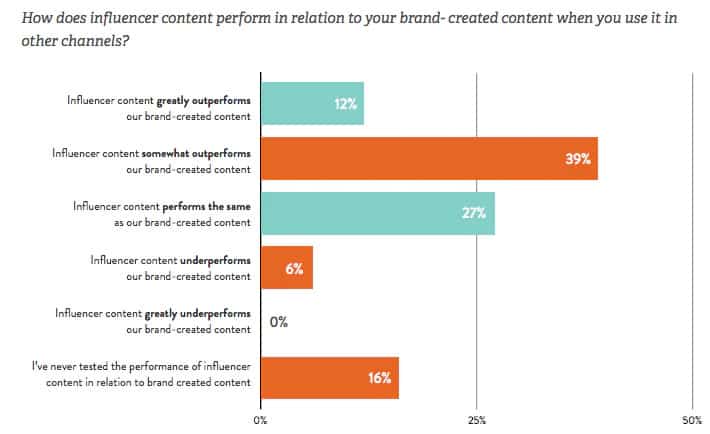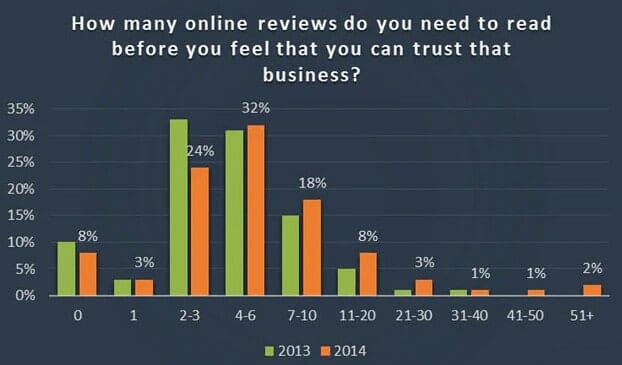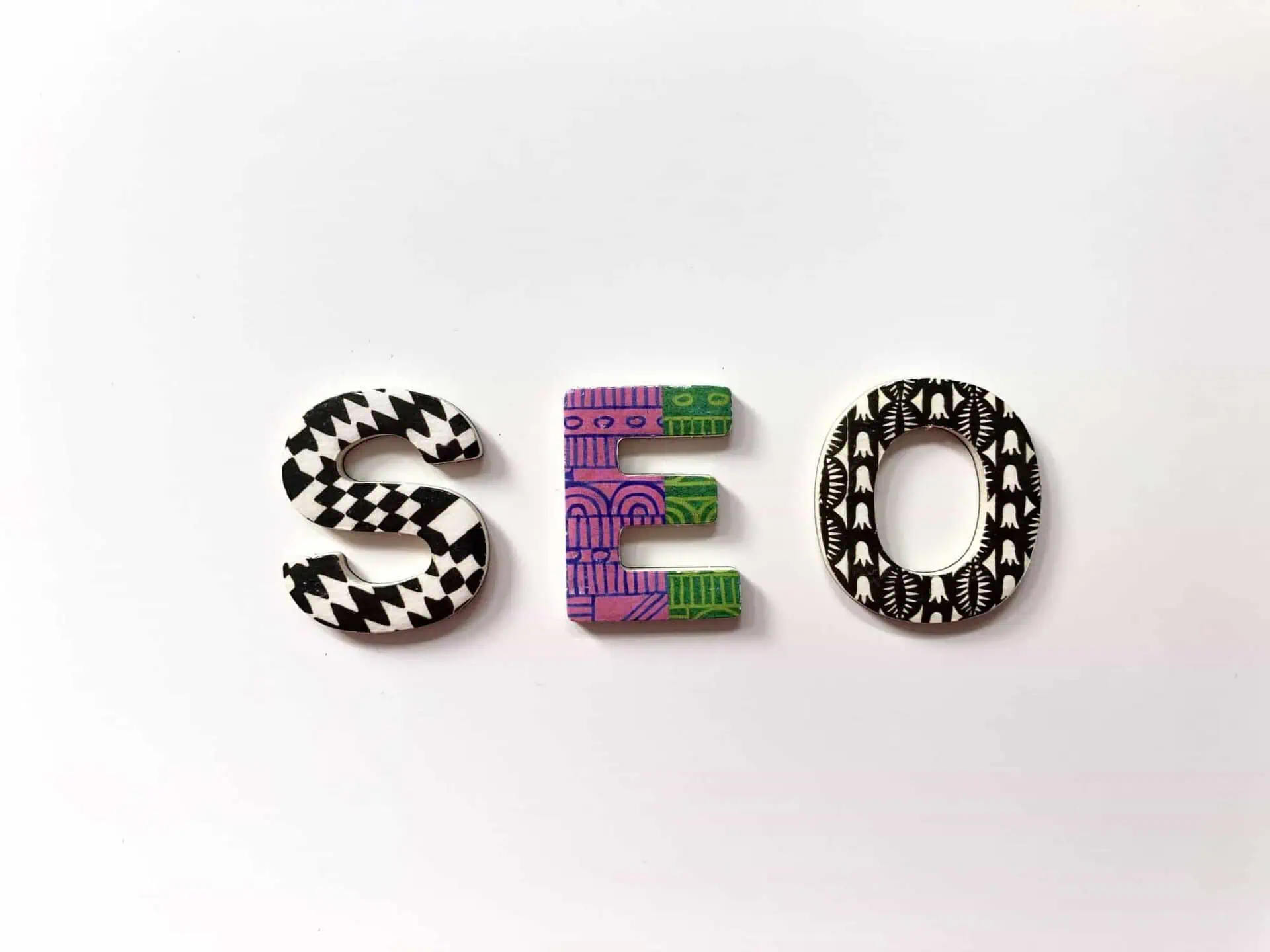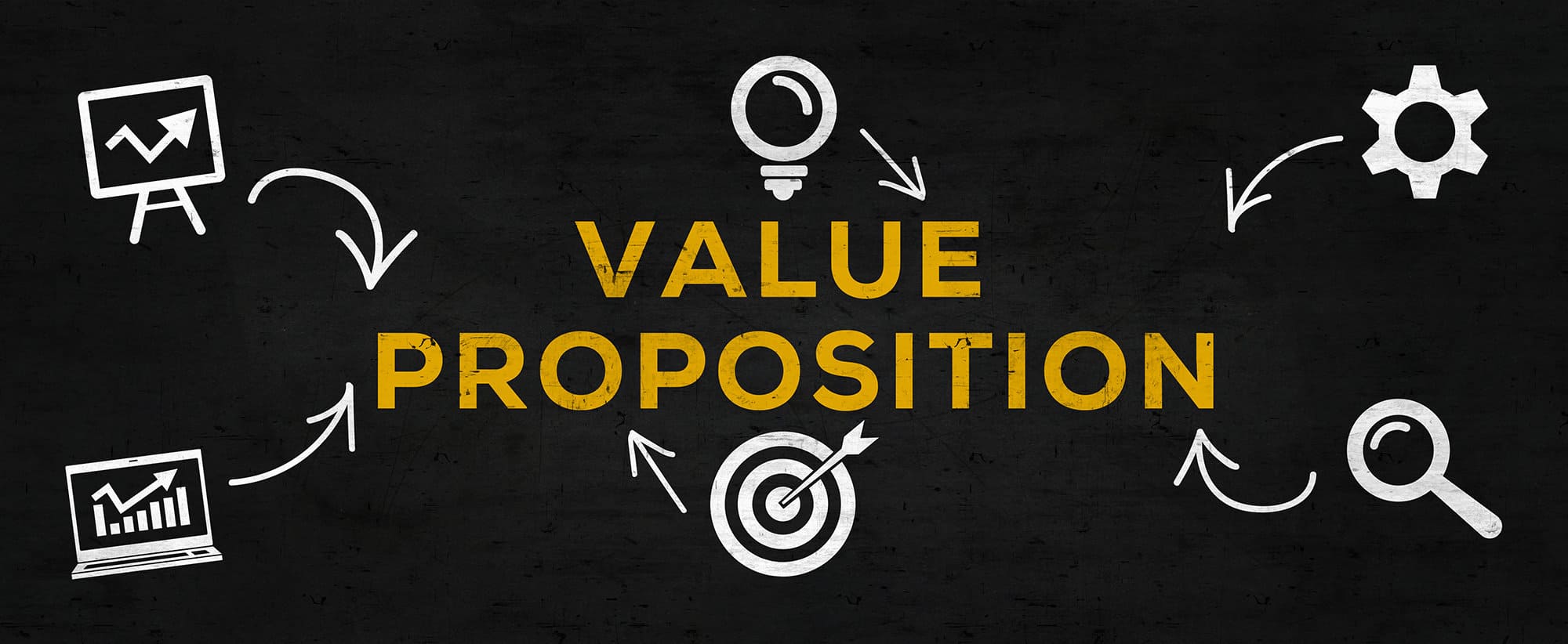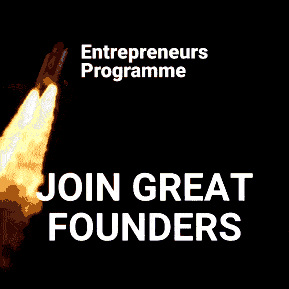The social media era's version of simple word of mouth is word of mouth marketing (WOMM), often known as word of mouth advertising. Traditionally, word of mouth marketing was spread by referral from one person to another. Modern word of mouth marketing include both intentional efforts and naturally occurring moments in which customers express their delight with a product or service.
In today's hyper-connected society, a single recommendation can have significantly larger impact, prompting word of mouth marketing (WOMM) or word of mouth advertising methods to take advantage of the possibility. Many best practices and marketing approaches support natural word of mouth, but campaigns, particularly on social media, can be designed specifically to increase an online business' social exposure.
What is Word Of Mouth Marketing
When a consumer's interest in a company's product or service is mirrored in their daily conversations, this is known as word of mouth marketing (WOMM). In essence, it's free advertising caused by consumer experiences, and it's usually something that exceeds their expectations. Companies can increase word of mouth marketing by implementing various publicity campaigns or by providing possibilities for consumer-to-consumer and consumer-to-marketer communication. WOM marketing encompasses buzz, viral, blog, emotive, and social media marketing.
Word of mouth marketing differs from natural references to a company's products and services in that it may be the consequence of a company's promotion, encouragement, or other influence, often known as "seeding." Word of mouth marketing occurs when a diner has a nice experience at a restaurant because their expectations were met and subsequently tweets about it, or when someone has a great experience utilizing a product in a novel way and tells everyone they know about it. Furthermore, word of mouth marketing does not end with the first interaction; it often leads to a series of subsequent interactions.
Types of Word Of Mouth Marketing
Can you recall the last time you saw something and felt compelled to share it with your friends? Do you recall having a fantastic dining experience and then tweeting about it?
This is basically word of mouth marketing (WOMM). It's an organic method of disseminating information that incorporates elements of viral marketing, but spreads through more natural pathways than viral marketing. One of the reasons word of mouth is so essential is that it is a free kind of advertising or promotion. Customers share it, and it's prompted by an event the customer has. This is a once-in-a-lifetime opportunity.
- Peer-to-peer. “I just had the nicest supper at a restaurant downtown,” a friend says to another friend. I believe you'd enjoy it!” This is the simplest form of word of mouth advertising. When you hear a suggestion from a colleague you respect and trust, you're far more inclined to try out the product, restaurant, or other service yourself. This form of engagement is difficult for marketers to accurately monitor or directly impact. In order to improve your reports, inquire about how new clients learned about you. If they answer, "I heard about you through a friend," you can ask them to elaborate on what their buddy appreciated specifically. Learning these things will help you to invest your time and energy to building your brand.
- Buzz Marketing. A viral marketing method aimed at boosting a campaign's or product's word of mouth potential, whether through talks among customers' family and friends or larger-scale debates on social media platforms. Companies that use buzz marketing want to raise awareness of their products and services through increased online traffic, as well as improve sales and profits, by getting consumers talking about them. If a corporation decides to promote a product through some form of event based around a show or stunt of some kind, where consumers can try the product and are encouraged to share their impressions through ordinary conversation or online, that is an example of buzz marketing.
- Product Seeding. When a company gives a free goods to a customer with no strings attached or request. Although it may appear unduly optimistic, more brands are adopting this cost-effective strategy. In the unending sea of micro influencers, product seeding also allows you to scale your influencer relationships and identify brand evangelists. Working with artists who are passionate about your product rather than merely for the money is the goal. You can scale your campaigns while keeping cost-effective by using your product as compensation for influencer content. It's not as straightforward as delivering free stuff to a list of influencers chosen at random. It takes time and effort to successfully seed influencers with products.
Word Of Mouth Marketing Strategies
While planning for a company's marketing plan, their goal is to strive to rank on Google and become popular on Facebook in order to expand their business, and that's okay, but the main reason businesses thrive is because they solve problems. Companies need to make a product or service that others will like using. You don't have to be the first, but you should make sure your offering is superior than others. Here are a few ways you can use to get people to know your product.
- Influencer marketing is for you if you're seeking for a controllable word of mouth marketing strategy. You'll have to pay an influencer to feature your products on their social media if you want to use influencer marketing. You have some control over what they post, when they post it, and how they post it since you pay them. The nice part about word of mouth marketing is that you can pay to start a conversation about your product and possibly make some purchases. What's the drawback? It's not entirely natural. It's a nice feeling to have real customers enthuse about your stuff.
- Hashtag Influence. Let's say for example, you opened a new Instagram account for your store. Start by generating a hashtag. It does not have to be anything fancy, just put your company name after the hashtag, such as #businessname. Initially, all of the posts will be from your company. But, without fail, other individuals will soon start to use your hashtag as well. Customers and admirers of the same specialty as your company will often start using your hashtag on in their social media posts. Hashtags are a subtle yet effective technique to get your customers to spread the word about your business. As a result, the hashtag will become increasingly popular.
- User-Generated Content (UGC) is as it's name suggest, content users make. It may be a photo of them using your goods on Instagram or a blog post on their website praising your stuff. By allowing customers to produce content, you can take simple actions to increase word of mouth. How? Share consumer images on your social media and on your product sites. Don't forget to give them credit in the post. Provide incentives for spreading the word about your company. Perhaps you have a referral or affiliate program where consumers can earn rewards or points for certain sorts of content they provide. Create a contest in which customers can submit photos of themselves using your product in exchange for a chance to win a free product or a gift card to your company. You may also urge them to get their friends to vote on their post in order to assist them win, which will increase your word of mouth.
- Take advantage of social media. Carter Wilkerson tweeted Wendy's around a year ago, asking how many retweets he'd need to obtain free nuggets. Wendy's responded with an insane 18 million tweets, and despite not receiving 18 million tweets, his tweet became the most retweeted tweet of all time. Consider what would happen if Wendy's didn't respond to his tweet. That word of mouth campaign would never have taken place. It's a big deal to become the most retweeted tweet of all time. Because of the tone of the tweet, the record he set, and the nuggets he received despite not attaining the objective, it garnered a lot of free media attention.
- Host Giveaways. For those just starting out, giveaways and contests are a terrific way to spread the word. On your store, you can give away free goods. Customers can enter by sharing the offer on social media in exchange for a chance to win the prize. This allows you to organically reach a newer audience. Create competitions and prizes on your Shopify store with applications like ViralSweep or Social Boost. What's the best part? You can contact everyone who didn't win after the event has concluded and give a runner-up award. A $5 gift card to your store might be the runner-up reward. That way, even if you don't win the contest, you can encourage people to shop at your store.
Effectiveness of Word of Mouth Marketing
We need to look at consumer trust in brands before we can understand why word of mouth marketing works so successfully. According to research, only 66% of consumers stated they perform their own web search, which obtained a better score than asking family or friends. This information is necessary to comprehend the changes that have occurred during the last 50 years. Consumers have less faith in companies and prefer to rely on people they know in real life. Because trust is eroding, word-of-mouth marketing is the one strategy that will never go out of style. The reason behind the effectiveness of word of mouth marketing is:
- Brand loyalty is established. When someone is a brand evangelist, they go out of their way to spread the word about your company to as many people as possible. They admire what you have to offer and support your cause. Consider how effective it is when someone promotes your brand to their friends, family, and social media followers. Eventually, those individuals will prefer your brand to others. It has a cascading impact.
- Increases brand exposure. The brand, sales, and market presence will increase without having to spend money on advertising. When it comes to budgeting, every company wants to get the most bang for their buck. According to Bain & Co, a 5% improvement in client retention can enhance a company's profitability by 75%. How can customer retention be improved? It usually has a lot to do with being open and honest about your brand's values. You're golden if you can hook customers with your objective, a clever marketing, or a memorable event. You can improve your relationship with your customers instead of spending portion of your revenue on social media advertising.
- It is genuine. People prefer authenticity now more than ever. When a brand uses word of mouth marketing to its advantage, a community is built around trust and honesty, rather than pressing people to buy. Fostering customer relationships with people who are truly interested in your product or service is far more beneficial than advertising to the masses in the hopes of increasing sales. When it comes to launching new items, having a loyal consumer base works wonders. Because they already enjoy your brand, they're more likely to buy it. Brand evangelists will buy more frequently, speak highly of your brand, engage with you on social media, naturally post about you, and, in the end, provide you with a higher return on your investment for the time you invested developing your strategy.
Word Of Mouth Marketing Statistics
For some, word of mouth marketing is a terrific method, but how can you know if it's right for your company? Many of your queries can be answered using statistics, including whether or not word of mouth marketing is the best technique for you.
Word of mouth marketing, according to 51% of marketers, trumps brand-created content. Because of the surge in organizations claiming to be the number one service provider in their area or the best in the company without offering proof, searchers and customers have found it increasingly difficult to believe branded material. For this reason, it is only reasonable to trust a customer's word above a brand's. Because they have nothing to lose, customers can give a terrific first-hand description of their experience with a brand and be completely honest.
In order for a searcher to trust a brand, they need an average of 2-6 reviews. The importance of reviews on Google, Yelp, and other review sites has never been greater, especially for small and local businesses. Reaching out to satisfied consumers and asking for online reviews can help build trust in your business among those considering a purchase. You can enhance sales of your goods without performing any labor by having more than two reviews online.
Difference of Word Of Mouth Marketing and Referral Marketing
Word Of Mouth marketing is all about generating interest. It's a low-key technique to build a following. The more individuals you interact with, the more probable your name will become well-known. Consider the snowball effect: you start with a modest, interesting Facebook post. A couple of people are impressed by the post, and they spread the news. That one post will be gone before you realize it. It's all about establishing massive brand recognition.
Referral marketing is a type of marketing that focuses on a single individual and encourages them to refer their friends. Referral marketing (and other referral-type marketing) is a subset of WOMM, but it's a more proactive approach to client acquisition because you have to manage the referral process and track the conversion process. Referral marketing, rather than a mass shout-out, is a more personal approach. Referral marketing is mainly about establishing a relationship with a certain group of people. That way, they'll recommend you to their friends and family.
| Word Of Mouth Marketing | Referral Marketing |
| Creating Buzz | Uses Word Of Mouth Marketing to help create a buzz and then uses that to track conversion |
| Spreads by impressing 1 person and then that person spreads the word to their friends and then so on | Encourages a specific person to spread the word, with or without incentives |
| Focuses on getting the message out there to as many people as possible | Uses Word Of Mouth Marketing to get the message out there but then focuses on turning people into consumers |
| Happens because customers are promoting you by word of mouth without your suggestion to do so | Happens because a customer was prompted to spread the word |
Example of Successful Word Of Mouth Marketing
Customers that are happy and engaged are the most effective marketing tool for your company. When friends and relatives tell them about wonderful products, they get excited. Being courteous and attentive to your customers pays off. When you provide excellent service and express gratitude, word spreads quickly. Customers become long-term brand ambassadors if you consistently meet their expectations. Businesses used to have limited power when it came to using word of mouth marketing. However, with the rise of social media and influencer marketing, motivating followers to take action has never been easier. With these creative word of mouth marketing examples, see how top brands get people talking.
- Ice Bucket Challenge for ALS. The ALS Ice Bucket Challenge was launched in 2014 as a fundraiser disguised as a challenge. Nominees poured a bucket of ice-cold water on themselves, photographed or videotaped it, and donated money to the charity. The challenge was then shared on social media, with friends and family members being nominated to take part. Videos from all over the world flooded in for this campaign. Celebrities also took part in the promotion. The campaign's biggest achievement, of course, was the money raised, which totaled $115 million over an eight-week period in 2014.
- Dunkin' Donuts. Dunkin' Donuts is ingrained in American society. The tasty dessert is enjoyed by both locals and tourists, and it has become a well-known brand in the United States. They have devoted following all across the world as a result of their excellent product, and Dunkin' Donuts has found effective ways to employ word of mouth marketing through these wonderful people. Followers engage with them on a daily basis when they use social media to organize competitions and offer fresh material. They participate in a variety of ways, such as liking, sharing, and even generating their own material about the brand to express their feelings about it. Their efforts paid off, as their social media accounts skyrocketed with 15 million Facebook fans, 1.5 million Instagram followers, and 1.2 million Twitter followers.
- Netflix. Netflix has not only been able to propose shows to users, but they have also been able to create Netflix originals that are targeted to the platform's most popular interests, thanks to the utilization of consumer data to truly understand what customers want on their platform. Using this data wisely, the firm has been able to boost positive consumer sentiment, resulting in an army of Netflix influencers who gush about the brand on the various social media platforms at their disposal. This free publicity has allowed the company to outperform competitors such as Amazon Prime, Hulu, and even YouTube in terms of growth.
Conclusion
Creating a word of mouth marketing campaign can help you increase brand awareness while also increasing revenues. It's not easy to turn your customers into enthusiastic fans. You may need to invest in word of mouth advertising to get the word out at first, but as your company grows, you'll notice word of mouth occurring on social media on a regular basis. Customers should be encouraged to tag friends in social media posts, share product images online, and submit product evaluations. Even if you're just getting started, these small activities taken on a daily basis will help you master word of mouth marketing. When you combine word of mouth marketing with other forms of promotion, the possibilities are unlimited.
Reference
Word Of Mouth Marketing Strategies
Types of Word Of Mouth Marketing
Difference between Word Of Mouth Marketing and Referral Marketing


